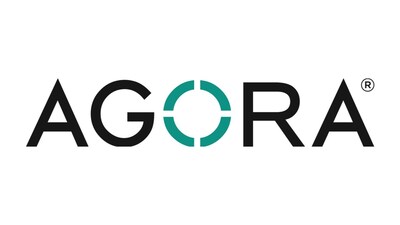Sustainability, equipment upgrades, and digitalization: big priorities for global pharmaceuticals, life science global study finds
Press Releases
Sep 12, 2023
Unispace Life Sciences’ new research report, Forefront, reveals six areas of focus for top global pharmaceutical firms.
NEW YORK, Sept. 12, 2023 /PRNewswire/ — Changing business needs are compelling pharmaceutical engineering leaders to identify new ways to streamline manufacturing operations. That’s the major conclusion from Forefront, the Unispace Life Sciences Global Benchmark Report, which provides a comprehensive examination of the state of engineering delivery in the life sciences and pharmaceutical industry (methodology below). In particular, the report reveals (1) sustainability, (2) equipment recapitalization, and (3) digitalization are among the biggest areas of focus in the coming year for the engineering function at large pharmaceutical organizations
Nascent sustainability plans indicate it’s a priority for the industry long-term
To date, more than half (56%) of global pharmaceutical companies have formal sustainability goals, and they are putting processes in place to deliver on these metrics. Nearly two-thirds (60%) of these respondents have, or will have, a sustainability budget, and 25% said they are adding a dedicated sustainability role at corporate and site levels to help meet their goals.
Waste reduction, recycling, energy optimization and material usage were reported as the most common areas of sustainability investment and will remain the focus over the next five years.
“Longer-term, we expect pharmaceutical companies to take an increasingly integrated approach to sustainability by considering the environmental impact of the entire life cycle of their products – from raw materials to disposal,” said John O’Reilly Global Managing Director, Unispace Life Sciences.
Creating a strategic equipment recapitalization approach now to support changing business needs
According to the report, most organizations are replacing equipment at individual manufacturing sites for reasons related to end-of-life (31%) and reliability risks (22%). Within five years, leaders acknowledge current equipment will likely be rendered obsolete due to business needs exceeding current capacity and changes in production functionality (33%).
“One of the biggest challenges faced by businesses when it comes to equipment recapitalization is navigating through unfamiliar technologies when modernizing their processes,” said O’Reilly. “It’s prudent for pharmaceutical engineering leaders to implement a proactive, strategic recapitalization approach that reflects the business needs of the organization long-term.”
Digitalization is key to unlocking business insights, and it starts with a workforce with the right skills
Half of respondents noted they already use data analysis to enable predictive actions, such as taking preventative or corrective measures before batch processes. In the next five years, real time analytics, data analytics, and artificial intelligence/machine learning are the areas respondents expect to see the most investment.
To meet ambitious technology goals, pharmaceutical engineering leaders acknowledge personnel needs are changing. They cite the following functions as critical to the organization in the next five years: Manufacturing execution system (MES) engineers (60%), data scientists (57%) and data management experts (57%).
To combat this ‘skills gap’, as many as 85% of respondents are choosing to upskill their current workforce instead of outsourcing to a third-party.
Methodology for Forefront, a Unispace Life Sciences report
Forefront, the Unispace Life Sciences Global Benchmark Report, is a comprehensive examination of the state of engineering delivery in the life sciences and pharmaceutical industry. The report covers six key areas:
- Engineering organizational structure
- Sustainability
- Pharma 4.0
- Equipment recapitalization
- Digital
- Maintenance
Research included surveying 180 global industry leaders, interviewing 12 blue-chip pharma companies, and learning from a roundtable hosted by The International Society for Pharmaceutical Engineering (ISPE) to understand topics unique to pharmaceutical engineering teams.
Media contact
Nicole Stenclik, Akrete
[email protected]
716.226.6989
About Unispace Life Sciences
Unispace Life Sciences delivers workplace, laboratory and facility design and construction projects for pharmaceutical, biopharmaceutical, advanced therapeutics, medical device, and other life sciences companies. Part of Unispace Group, our award-winning and multi-disciplinary engineering, design, and construction project teams design and build complex process-driven life sciences facilities, labs and workplaces for the world’s top bio-pharma companies.
The full report is available here.
About Unispace Group
A strategy, design, and construction leader creating experiences for work for a rapidly changing world. Unispace Group is a global firm that offers a unified team solution for creating people-centric spaces with purpose – including offices, laboratories and life sciences facilities, campuses, HQ’s, hospitality and sports venues and retail spaces that spark brilliance, deepen connections, foster a sense of belonging and propel success. With 5,500 projects completed, a presence across 26 countries, and 700+ employees worldwide, our goal is to create spaces that spark brilliance for the people who use them – powered by collaborative client partnerships, delivered seamlessly across borders, and enabled by real-world insights.
![]() View original content to download multimedia:https://www.prnewswire.com/news-releases/sustainability-equipment-upgrades-and-digitalization-big-priorities-for-global-pharmaceuticals-life-science-global-study-finds-301925015.html
View original content to download multimedia:https://www.prnewswire.com/news-releases/sustainability-equipment-upgrades-and-digitalization-big-priorities-for-global-pharmaceuticals-life-science-global-study-finds-301925015.html
SOURCE Unispace




